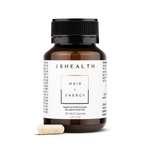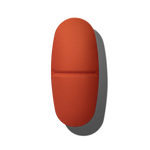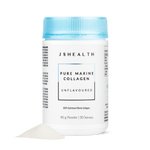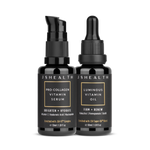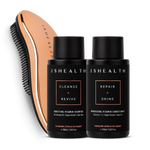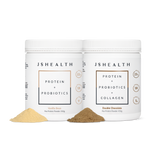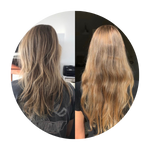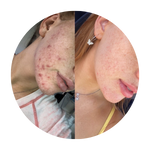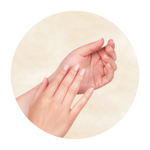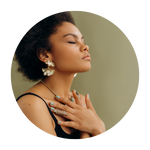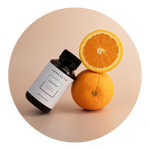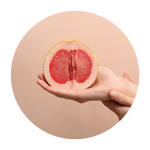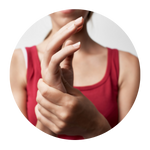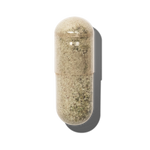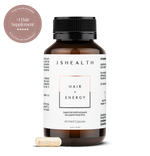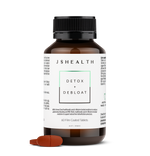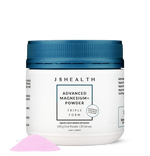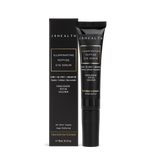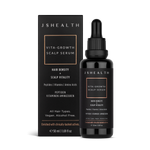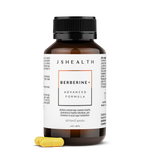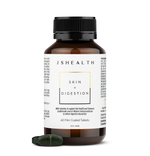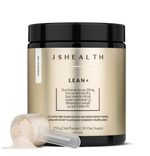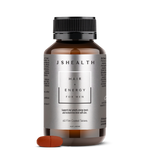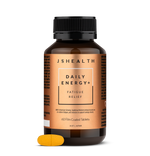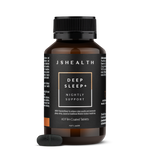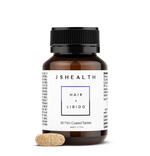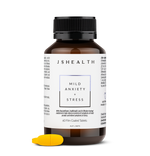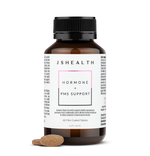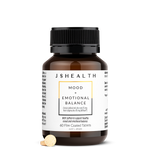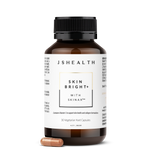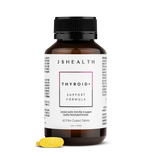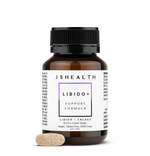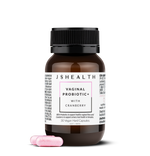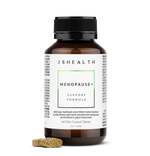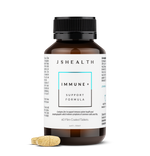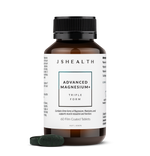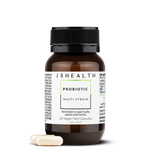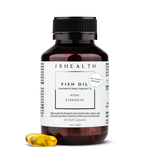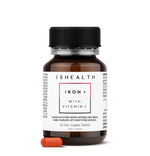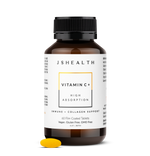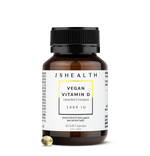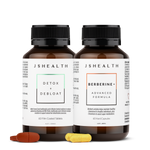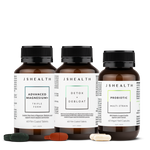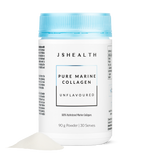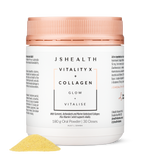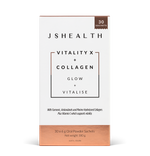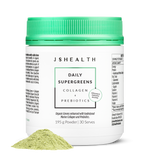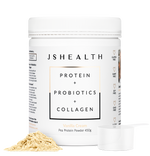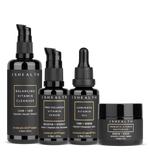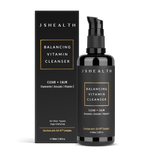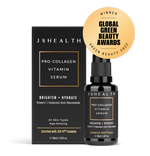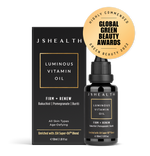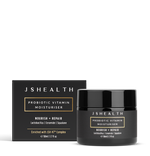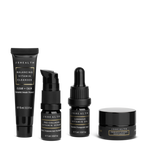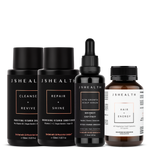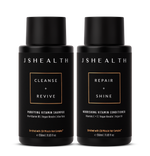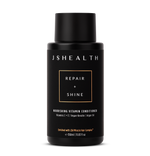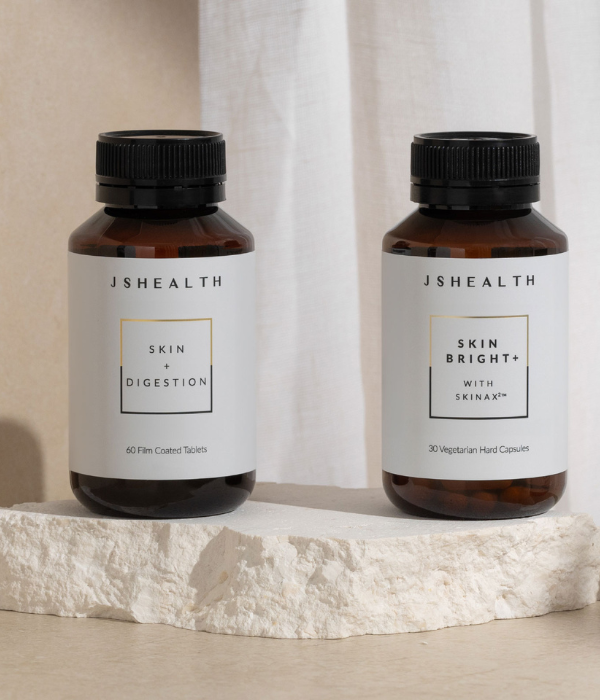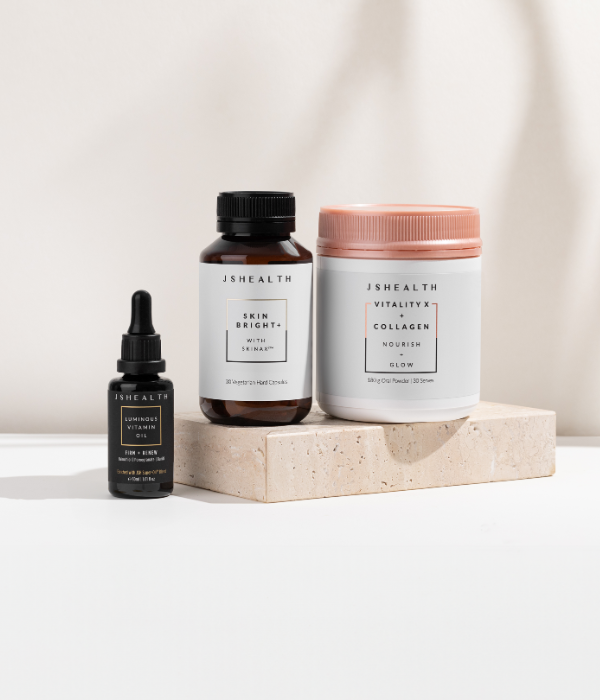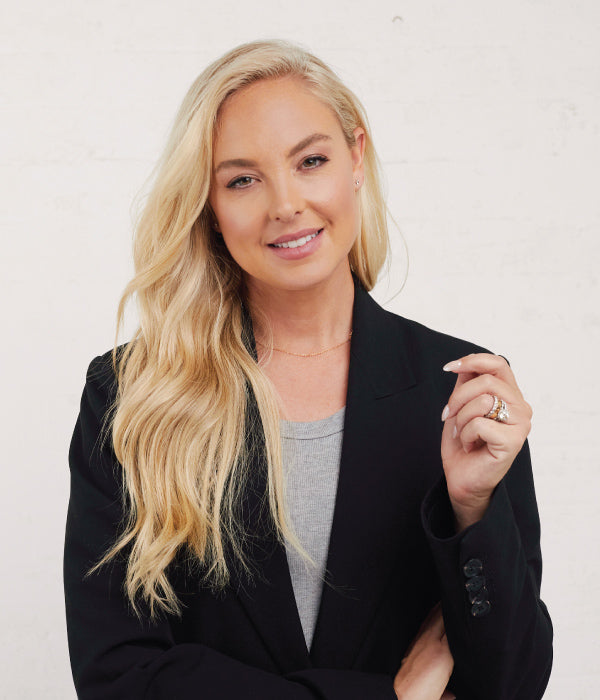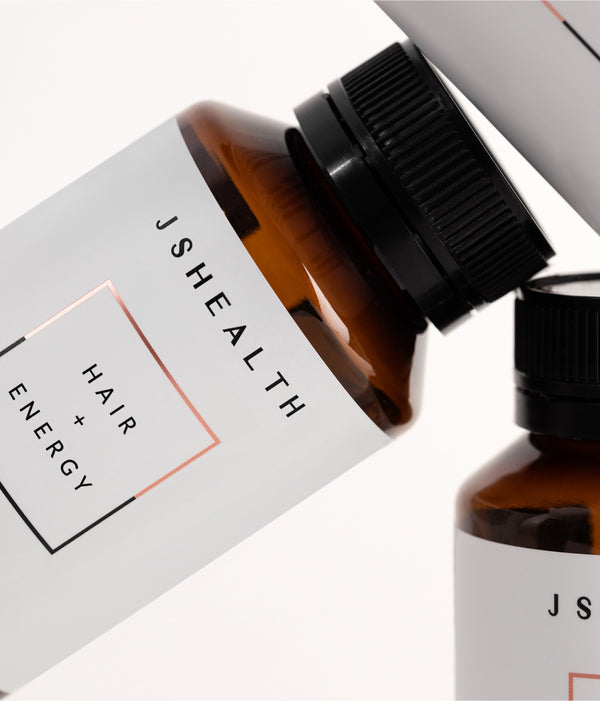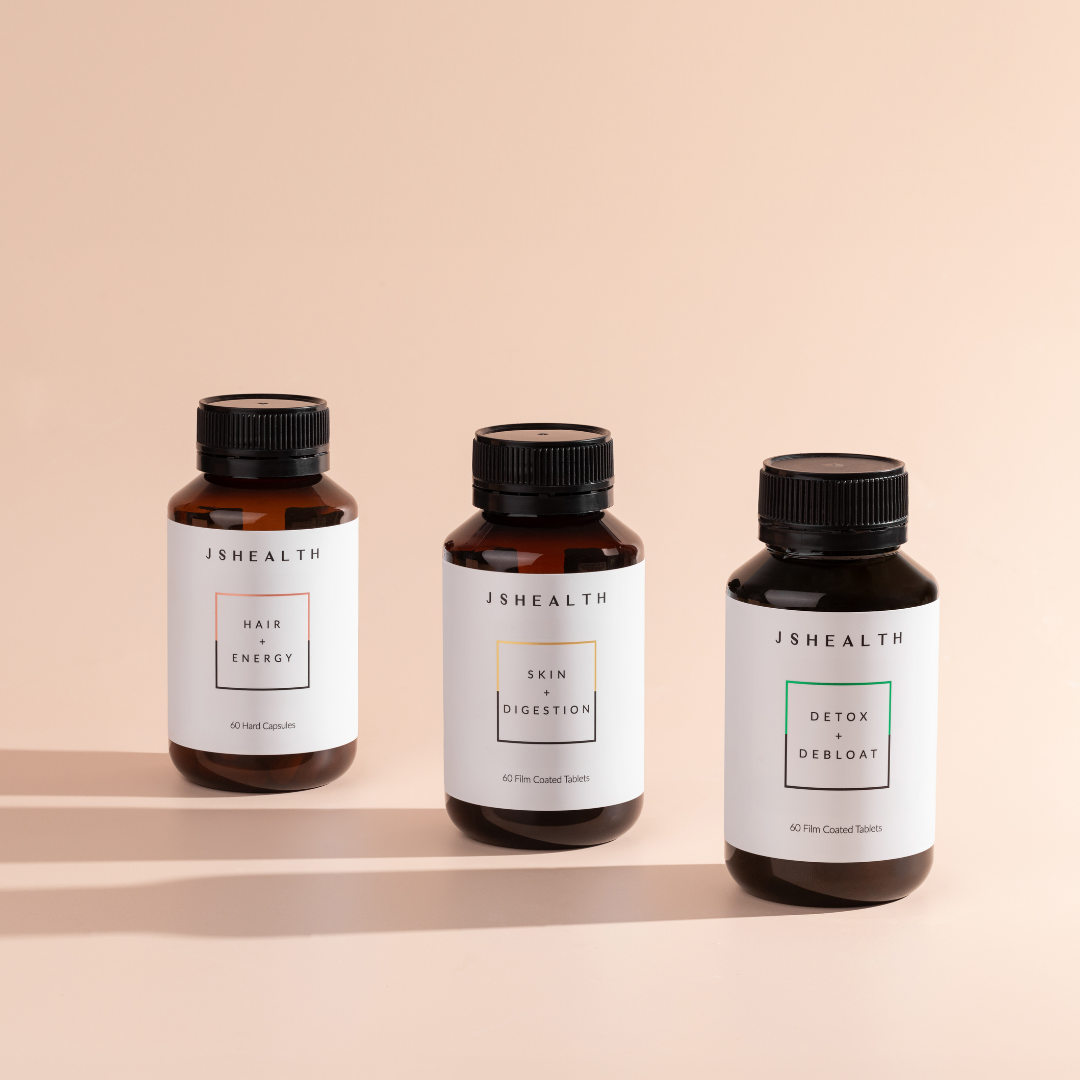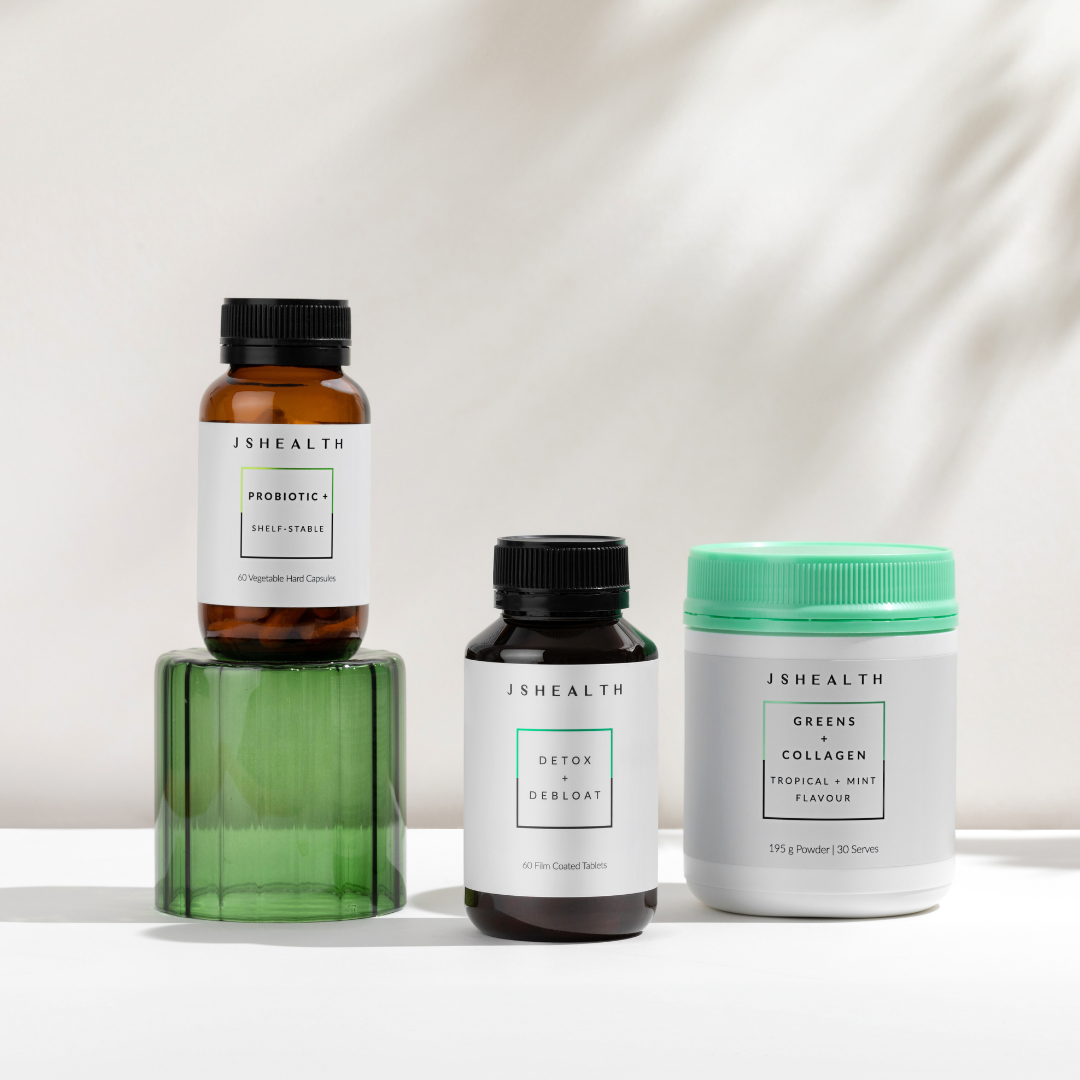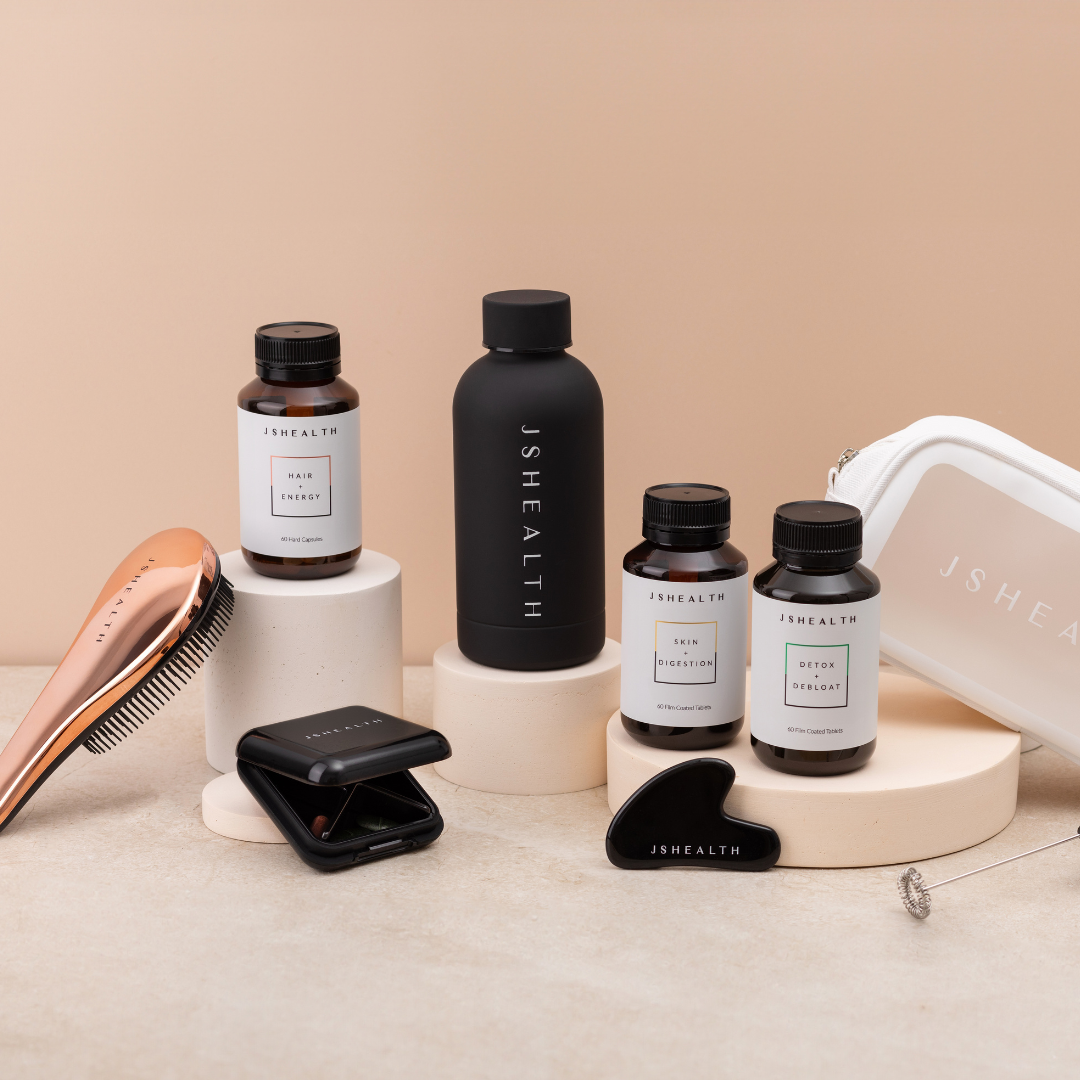Hair Oils for Hair Growth
We all dream of nurturing long, natural tresses. Like all rewarding things in life, achieving our goals takes time and perseverance. Patience and proper hair care are your two best friends on the journey to longer, healthier hair.
Hair oils, for instance, can be your secret weapon. When used correctly, they can encourage the growth of strong, vibrant hair while adding a look of fullness.
Let's dive into how they work and what you can expect from a high-quality hair oil.
Do We Need Hair Oil?
Those of us with normal to dry hair, damaged hair, and colour-treated hair may benefit from hair oil. The hydrating and nourishing effects of hair oil can promote the appearance of healthier-looking hair, while reducing the chances of breakage.
Hair oil also works as a natural styling product. While it won’t yield the same hold as spray, mousse, or gel, it can add just enough weight to hair to help keep natural curls together and keep frizz or flyaways at bay. Plus, it can help you achieve a more sleek, glossy hairstyle.
However, those of us with very oily hair might not benefit from hair oil. When the scalp already produces sufficient oil to coat and protect the hair, there’s usually no need to add more oil into the mix.
Instead, focus on protecting the health of the hair and using gentle products that won’t strip away your natural oils.
Can Hair Oil Help With Hair Growth?
Hair is made of a hard, strong protein called keratin. The body produces keratin and expels it through the hair follicles according to its own production schedule. It’s a natural process that the body manages on its own.
Hair oil can’t make hair grow faster than it naturally grows, and most people will experience about half an inch of hair growth per month, averaging about six inches of growth per year. There is no oil that can be applied to the scalp that will make the process go faster. We all grow hair at slightly different rates, and that rate is determined by our genes and biology.
While hair oil might not help with hair growth, it may help to prevent hair breakage or help the hair appear slightly longer by weighing it down a little. Those of us with curly, frizzy, or thick hair types are most likely to see a temporary lengthening illusion from hair oils as the oils weigh down the hair strands, letting the hair fall and lay lower.
The moisture from hair oil can help to condition and protect dry or brittle hair that may be prone to breakage, which can lead to the appearance that hair isn’t growing. Our hair reaches a certain point in the growth cycle, snaps off, and leaves the ends of the hair uneven. Split ends can have a similar effect.
The only way to fix this is to get a trim, which starts the process all over again. By preventing breakage and preserving the health of our hair, we can allow our hair to grow longer without needing a significant trim.
What Are the Best Hair Oils?
The best hair oils are natural oils with minimal additives and no artificial fragrances or irritants. It's these natural ingredients that can bring about the most remarkable transformations.
Think of it this way — if an oil is gentle enough to be part of your cooking (and thus digested!), it's likely just as kind and nurturing to your hair. Remember, the journey to luscious locks is as much about nourishing your hair as it is about cherishing the process.
Let’s explore some of the topical oil treatments you can conveniently try at home.
Castor Oil
Castor oil has been a favourite among hair care enthusiasts for years. It was once believed to promote faster hair growth, although no studies have demonstrated this effect.
Castor oil is rich in a naturally occurring plant compound called ricinoleic acid. Ricinoleic acid can help to encourage blood flow and soothe irritation on the scalp, both of which can support the health of your scalp.
Olive Oil
People have been using olive oil as a natural skincare and haircare product for centuries. Olive oil is high in healthy omega fats that can work to draw and trap moisture, making it valuable for both the skin and the hair. Olive oil is also packed with antioxidants that can work to preserve healthy cells.
Argan Oil
Argan oil, sometimes called Moroccan oil or liquid gold, is made from the kernels of the argan tree. It’s naturally rich in omega-6 fatty acids and vitamin E, both of which are deeply nourishing and beneficial to overall skin health. These moisturising oils can act as a conditioner for hair, leaving strands silky soft and easily tamed.
Argan oil is a heavy oil, but it can be used as a leave-in conditioner if you mostly apply it to the ends of the hair. Working a few drops through the lengths of the hair can help to protect hair from breakage that may hinder your hair growth goals.
Coconut Oil
Those of us with curly hair may benefit from a little bit of coconut oil, since curly hair is prone to dryness and breakage at the tightest point of each curl. Coconut oil is thick and rich, and it can act as a protective moisturiser for parched, curly hair.
It’s also easier to use than many other oils due to its natural waxy texture. Coconut oil can be slightly warmed and applied like a balm, which allows for more precision in application.
Jojoba Oil
Jojoba oil is naturally rich in vitamins and minerals known to promote hair and nail health. It’s also an occlusive moisturiser, which means it can trap moisture within the hair and scalp and prevent that moisture from escaping.
Jojoba oil is perfect for those of us who like to apply our hair products immediately after we shower. Applying jojoba oil while the hair is still wet can help allow the hair to dry while preventing all of the moisture from evaporating.
Essential Oil Blends
Essential oils like rosemary oil and peppermint oil can stimulate and invigorate the scalp, helping to support circulation when gently massaged into the roots of the hair. Rosemary oil is also said to support new hair growth, which may be helpful for those with thinning hair or poor hair health.
Essential oils are very strong and need to be diluted in a carrier oil such as almond oil to make them gentle enough to use directly on the skin. Just a drop or two is enough to make a difference.
Can Adding Oils to Our Diet Help With Our Hair?
Hair oils are intended to be applied topically. While many natural oils are safe to ingest, ingesting excessive amounts of oil can cause bloating or digestive upset. Instead, it’s generally best to stick to using oil as a hair product.
How Do We Use Hair Oil?
Heavier oils don’t usually work well as leave-in hair treatments. It’s generally best to apply them to the hair prior to showering, where the residual oil can easily be removed with a gentle shampoo and warm water.
Hair oils can sit on the hair indefinitely, but about 20 minutes should suffice. About 20 minutes before shower time, apply hair oil in small amounts starting at the roots and work your way down toward the ends.
Start with a grape-sized amount and slowly massage it through until you’ve thoroughly coated your hair. Excess oil will trickle down, which means less oil is necessary toward the ends of the hair. A shower cap can prevent excess oil from rubbing off on clothing or furniture.
When using a leave-in oil, apply the oil after a shower while the hair is still slightly damp. Start at the mid-lengths of the hair and gently work the oil down to the roots.
Pro Tips for Using Hair Oil
Those of us who have never used hair oils before might find it a little tricky. Most leave-in treatments and masques have a texture similar to conditioner, or they come in a bottle that can easily be spritzed onto the hair. Working with oil is a little different, but it isn’t difficult to master.
Warm It Up a Little
Warmth can open the cuticle of the hair, making it easier for each individual hair shaft to absorb vitamins, nutrients, and moisturising ingredients. Warm the oil by placing the bottle in a bowl or basin of hot water for a few minutes. This is a must for coconut oil, which won’t become liquid unless it’s warm.
Give Yourself a Scalp Massage
Oils like rosemary and peppermint are invigorating. You can also use them to give your scalp a refreshing massage, which can encourage blood circulation and healthy lymphatic drainage. It also feels good, which is reason enough to give it a try.
Massage can also help to gently soothe itchiness associated with a dry scalp. Massaging isn’t as abrasive as scratching, which makes it less likely to cause damage to the hair.
When the main goal is to encourage healthy hair growth, a scalp massage can help immensely. Try circular motions with gentle pressure, using only your fingertips. About five minutes works wonderfully, but if you truly enjoy it, feel free to go for a little longer! You can also do massages with hair masks, hair serums and conditioners.
Wash Away the Excess
Some of us might be a little iffy about using hair oil because we don’t want to wind up looking greasy. Luckily, warm water and shampoo can help take away the excess oil to help prevent any buildup. A second shampoo might be necessary if the hair is overloaded with oil.
When washing out the oil, make sure to lean forward in the shower. This allows the oil residue to run straight down rather than all over the skin. Those of us who are prone to breakouts don’t want to allow excessive amounts of oil to accumulate on our skin.
The Bottom Line
Although no oil can cause hair to grow faster than it naturally would, some oils have protective properties that can combat breakage. Using hair oils regularly as part of a hair care regimen may be valuable, especially for those of us with dry, brittle or curly hair.
Sources:
Keratin: Protein, Structure, Benefits, Uses & Risks | Cleveland Clinic
Everything You Need to Know About Massage Therapy | Cleveland Clinic
